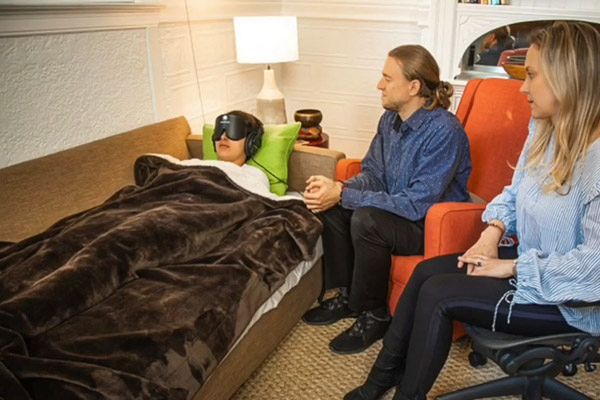
Psychedelic Assisted Therapy Training
Psychedelic-assisted therapy is rapidly gaining attention in the mental health community, and for good reason. It involves the use of psychedelic substances, such as psilocybin, MDMA and Ketamine, in a controlled and therapeutic setting to help individuals address a range of psychological and emotional issues. But what does it take to become a professional in this emerging field? That’s where psychedelic-assisted therapy training comes in.
Understanding Psychedelic Assisted Therapy
Before diving into the training aspects, it’s crucial to understand what psychedelic-assisted therapy entails. Typically, the approach combines psychotherapy with the use of psychedelic substances under the guidance of a trained therapist. The aim is to facilitate deeper self-exploration and promote healing, often achieving quicker and more sustained results than traditional therapy alone.
Components of Training
Educational Background
To embark on a career in psychedelic-assisted therapy, a strong educational background in psychology, psychiatry, or a related healthcare field is generally required. This ensures that trainees have a foundational understanding of mental health disorders, therapeutic interventions, and ethical considerations.
Specialized Training Programs
ATMA offers specialized training programs tailored for healthcare practitioners. Our training encompasses three main phases: Introduction to Psychedelic Assisted Therapy, Advanced Psychedelic Assisted Therapy Training, and the Physicians & Prescribers Psychedelic-Assisted Therapy Training
Our programs cover the following main topics:
Psychedelic Foundation
An overview of the psychedelic landscape, delving into the history and current research being conducted in psychedelic therapy.
Psychedelic Medicines
Learn about the various compounds and medications that fall under the “psychedelic” category, including psilocybin, LSD, MDMA, and other lesser-known molecules.
Access and Inclusivity
Learn from diverse perspectives about the issues and concerns being addressed as this field develops, including considerations related to indigenous communities, marginalized groups, and the LGBTQ+ community.
Altered States of Consciousness
Altered states of consciousness entail more than just psychedelic trips; this module explores other modalities that include mystical experiences, yoga, breathwork, cannabis, and more.
The Therapeutic Facilitator
The importance of a guide/therapist/coach in the psychedelic therapy process is crucial for success. This module addresses the roles of those leading the work with medicine and the best approaches to this field as a therapist/counselor, etc.
Ethics and Consent
Guidelines and ethical considerations, diverse group considerations, consent/boundaries, and appropriate touch, along with consent/boundary considerations for therapy with psilocybin and MDMA, and harm reduction in challenging situations and adverse events.
Preparing the Client for Psychedelic Assisted Therapy (Psychedelic Assisted Therapy) – “Set”
An overview of “Set” (mental state), evaluation for safe and optimal experiences, client preparation for Psychedelic-Assisted Therapy (PaT), and effective modalities for client preparation.
Preparing the Environment for Psychedelic-Assisted Therapy – “Setting”
The importance of the physical, social, and cultural environment, elements of the treatment space, the role of music, and individual vs. group experiences.
Integration of Psychedelic-Assisted Therapy
The importance of integration, models of integration, and considerations for individual and group integration. Unpacking the client’s/patient’s experience with psychedelics.
Unit 10 – Applications of Psychedelic-Assisted Therapy
Choosing the right psychedelic for the client, addressing issues such as addiction, Post-Traumatic Stress Disorder (PTSD), palliative care, depression, and anxiety, as well as relationship counseling and personal/leadership awareness/enhancement.
Unit 11 – Complementary Modalities
Working with other modalities in conjunction with psychedelics can enhance the effectiveness of therapy sessions. We cover modalities like IFS, ACT, Grof’s psyche cartography, and others, delving into the synergy and effectiveness of combining these modalities with psychedelic work. Hands-On Experience
Practical Training
Learning is supplemented by hands-on experience in our clinical Trials. Here, trainees can observe experienced therapists and participate in therapy sessions under supervision. This practical exposure helps trainees become familiar with both the theoretical and operational aspects of psychedelic-assisted therapy.
Certification
Upon successful completion of a training program, candidates may receive certification. While not mandatory, certification can validate one’s skills and make it easier to operate within legal frameworks where psychedelic therapies are permitted.
Ethical and Legal Considerations
Given the legal status of many psychedelic substances, it is crucial for trainees to be well-versed in the current laws and regulations in their jurisdiction. Ethical considerations are also paramount, as therapists will be administering substances that profoundly alter a patient’s state of consciousness.
The Future of Psychedelic-Assisted Therapy Training
As research continues to affirm the efficacy of psychedelic-assisted therapy for conditions like depression, PTSD, and anxiety, the demand for trained professionals in the field is likely to grow. Training programs will evolve to include new research findings, updates in legal frameworks and there may be a push toward standardization and accreditation in the future.
Psychedelic-assisted therapy is more than just a trend; it’s a groundbreaking approach that has the potential to revolutionize mental health treatment. Those interested in this field must undergo rigorous training to gain the skills, knowledge, and ethical grounding needed to practice safely and effectively. As the landscape of mental health care continues to evolve, psychedelic assisted therapy training will play a pivotal role in shaping its future.





